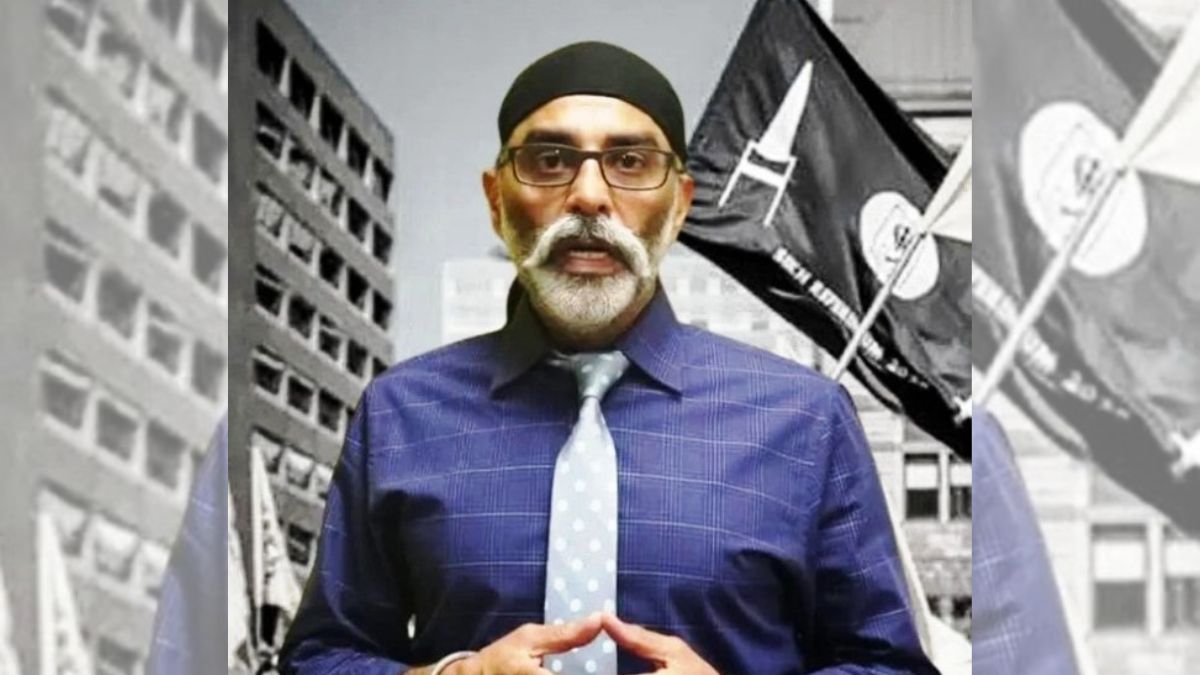The arrest and charges against Vikash Yadav, a former Indian intelligence officer, for allegedly plotting the assassination of Gurpatwant Singh Pannun, a Khalistani terrorist residing in the United States, has sparked significant international attention. This incident highlights the complex geopolitical dynamics surrounding Khalistani extremism, the intersection of intelligence operations and international law, and the potential consequences of cross-border criminal activity. The case raises concerns about the implications for international relations and the protection of individuals exercising their right to free speech, even when that speech is considered inflammatory or threatening. The alleged plot also underscores the persistent challenges faced by both India and the United States in combating terrorism and maintaining security in a globalized world.
The Alleged Assassination Plot and the Accused
Vikash Yadav’s Role and the Charges
The core of the case centers on the alleged conspiracy orchestrated by Vikash Yadav, a former officer of India’s Research and Analysis Wing (RAW). US authorities accuse him of being the mastermind behind a plot to murder Gurpatwant Singh Pannun, a Khalistani leader residing in the US. Yadav faces charges of murder-for-hire and money laundering, serious felonies carrying significant prison sentences. The indictment details his alleged recruitment of Nikhil Gupta, an Indian national, to facilitate the assassination attempt. The specifics of how Yadav allegedly communicated with Gupta and attempted to hire a hitman remain under investigation. The US Justice Department’s meticulous investigation has built a strong case. The details revealed demonstrate careful planning and a deliberate attempt to eliminate Pannun.
Nikhil Gupta’s Involvement and Extradtion
Nikhil Gupta’s role as an alleged intermediary is crucial to the prosecution’s case. Arrested in the Czech Republic, he was subsequently extradited to the US to face charges related to his alleged involvement in hiring a hitman. Gupta’s plea of “not guilty” sets the stage for a protracted legal battle, with the prosecution needing to present compelling evidence linking him directly to Yadav and the planned assassination. The extradition itself highlights the international cooperation necessary to pursue such complex transnational crimes. Understanding Gupta’s motivations and the extent of his involvement will be critical in unraveling the full scope of the conspiracy.
The Target: Gurpatwant Singh Pannun
Gurpatwant Singh Pannun, the intended target of the alleged assassination, is a controversial figure. Designated as a terrorist by India, he’s known for his outspoken advocacy for Khalistan, a separate Sikh state. His inflammatory rhetoric and threats directed towards India and its citizens have contributed to escalating tensions. While Pannun enjoys constitutional rights to free speech in the US, his activities remain a source of considerable concern for India. The US authorities’ clear stance against the assassination attempt underscores the importance of protecting individual freedoms while preventing violent acts. The case highlights the complicated challenges involved in balancing freedom of speech with security concerns.
International Implications and Geopolitical Tensions
India-US Relations and Cooperation
The Yadav case has the potential to strain relations between India and the US, particularly considering the sensitivity surrounding counter-terrorism cooperation. While the Indian government has confirmed that Yadav is no longer associated with RAW, the charges against a former intelligence officer could affect trust and collaboration. The incident serves as a reminder of the need for careful vetting and oversight of intelligence operations to avoid mishaps with far-reaching implications for bilateral partnerships. Continued transparency between the two countries is crucial.
The Canada-India Diplomatic Dispute
This incident unfolds against the backdrop of already strained relations between India and Canada. Canada’s allegations of Indian agents being involved in the assassination of Hardeep Singh Nijjar, another Khalistani figure, further complicates the situation. The Yadav case could exacerbate existing tensions, necessitating careful diplomatic management to prevent further escalation. Both countries face the challenge of maintaining robust security measures while adhering to international law and preserving diplomatic ties.
The broader context of Khalistani Extremism
The case underscores the continuing challenge of Khalistani extremism and its international reach. The involvement of individuals based in different countries points to the transnational nature of this issue. Addressing Khalistani extremism requires a multi-pronged approach. International cooperation among various governments and security agencies is essential in countering these activities and preventing further violent incidents. The success of the case rests on effective law enforcement and international cooperation.
Legal Ramifications and Future Proceedings
The Trial and Possible Outcomes
The legal proceedings against both Yadav and Gupta will be closely watched. The prosecution’s ability to present sufficient evidence to support the charges will determine the outcome. A successful conviction could set a significant precedent, affirming the seriousness of such conspiracies and bolstering international efforts to combat terrorism. The trial will need a careful review of evidence and witness testimonies to ensure a just verdict is reached. It will shed more light on how exactly this complex plot was formed and carried out.
Implications for International Law and Justice
The case has broad implications for international law and the pursuit of justice in cross-border criminal activity. The cooperation between the US, Czech Republic, and possibly India, demonstrates the need for coordinated efforts to tackle transnational crime effectively. The case illustrates the complexity of handling transnational crime with respect to extraditions and international protocols. Any conviction could provide strong examples for handling future instances.
Takeaway Points:
- The alleged assassination plot against Gurpatwant Singh Pannun highlights the complex interplay between intelligence operations, terrorism, and international relations.
- The charges against Vikash Yadav, a former RAW officer, raise serious concerns about accountability and oversight within intelligence agencies.
- The involvement of Nikhil Gupta and the extradition proceedings underscore the transnational nature of the crime and the importance of international cooperation in bringing perpetrators to justice.
- The case has the potential to significantly impact India-US relations and further strain the already tense relationship between India and Canada.
- The broader context of Khalistani extremism necessitates a coordinated international effort to counter its influence and prevent future violent incidents.









